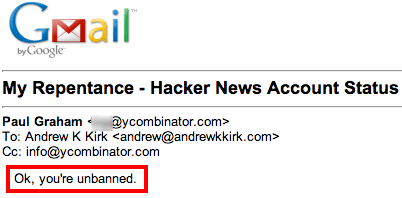With the start of the new year, my mind is on resolutions and how to best achieve these changes I’d like to accomplish throughout the year. I try to bea better person towards others, to live a healthier lifestyle, and to progress my career.
I certainly don’t achieve all my resolutions, but I’ve got an high success rate; the following tips have greatly helped me and they can do the same for you:
#1 Make it Specific
Far too many people make the mistake of creating resolutions that are vague. Vague aspirations make it extremely difficult to truly understand what you want to achieve and therefore even harder to make meaningful strides. For example:
Vague: Improve my health.
Specific: Track my daily calorie intake and exercise at least 329 days in a year (90%).
Vague: Improve my writing.
Specific: Publish weekly posts (52 total) on andrewkkirk.com blog.
Want to know if your goals are specific? Here’s a quick test – can you measure your results?
#2 Make it Measurable
Having goals are meaningless without any frame to reference progress. Tracking your results serves several purposes.
First, measurements give you data to quantify results. Without measurement to keep us honest, it’s too easy to rely on judgement alone. As the resolution creator and judge, we’re biased. Measuring removes judgement from the results.
Second, analytically data will drive your sense of purpose. It’s too easy to lose focus with unspecific, unmeasurable goals. Abstraction is the enemy of your goals.
Tracking data points allows us to be binary. At the end of each week, I will have either completed or not completed an average of one new blog post. By constantly updating progress, we’re provided instant feedback which allows for adjustments. By measuring progress, there are no surprise results – you always know your status. If you’re looking for easy tool for tracking, Lift App is my favorite tool for tracking daily habits.
You can’t manage what you don’t measure. Tweet This
#3 Write it Down
You need to write down your goals. You certainly don’t want to forget your goals, but the implications are deeper. The physical act of documenting your desired results has psychological implications. You create a pact with yourself.
My process involves writing my goals down with pen and paper, then capturing it electronically to be stored in an ever-growing file stored in Evernote. Keep each year stored together and you’ll be happy to see the log over a few years time. I’m already excited for the joy I’ll have when I stumble back upon my current list in 20 or 30 years from now.
#4 Make it Realistic
It’s a new year. Hope and optimism is overflowing. It’s an exciting time, and the excitement can impair our acuity. I’m not talking about giving yourself softball lobs (ever tried to hit a softball? – not as easy as this metaphor implies). Anything too easy will have no meaning or impact.
But, the converse is true. You’ll lose hope and will abandon incredibly difficult or unattainable goals. We don’t change easily, so think realistically. Only you can determine what lies just beyond your current comfort zone.
Bonus: #5 Share Your Goals
Follow #1-4 and you’ll be in a great spot. And if you want to take the process to the next level, tell your goals with others. In addition to your own drive, you’ll have added desire to stick to what you’ve shared.
Share it with your partner, close friends, or on Facebook. In all cases, a positive social pressure will give you an extra boost of motivation.





